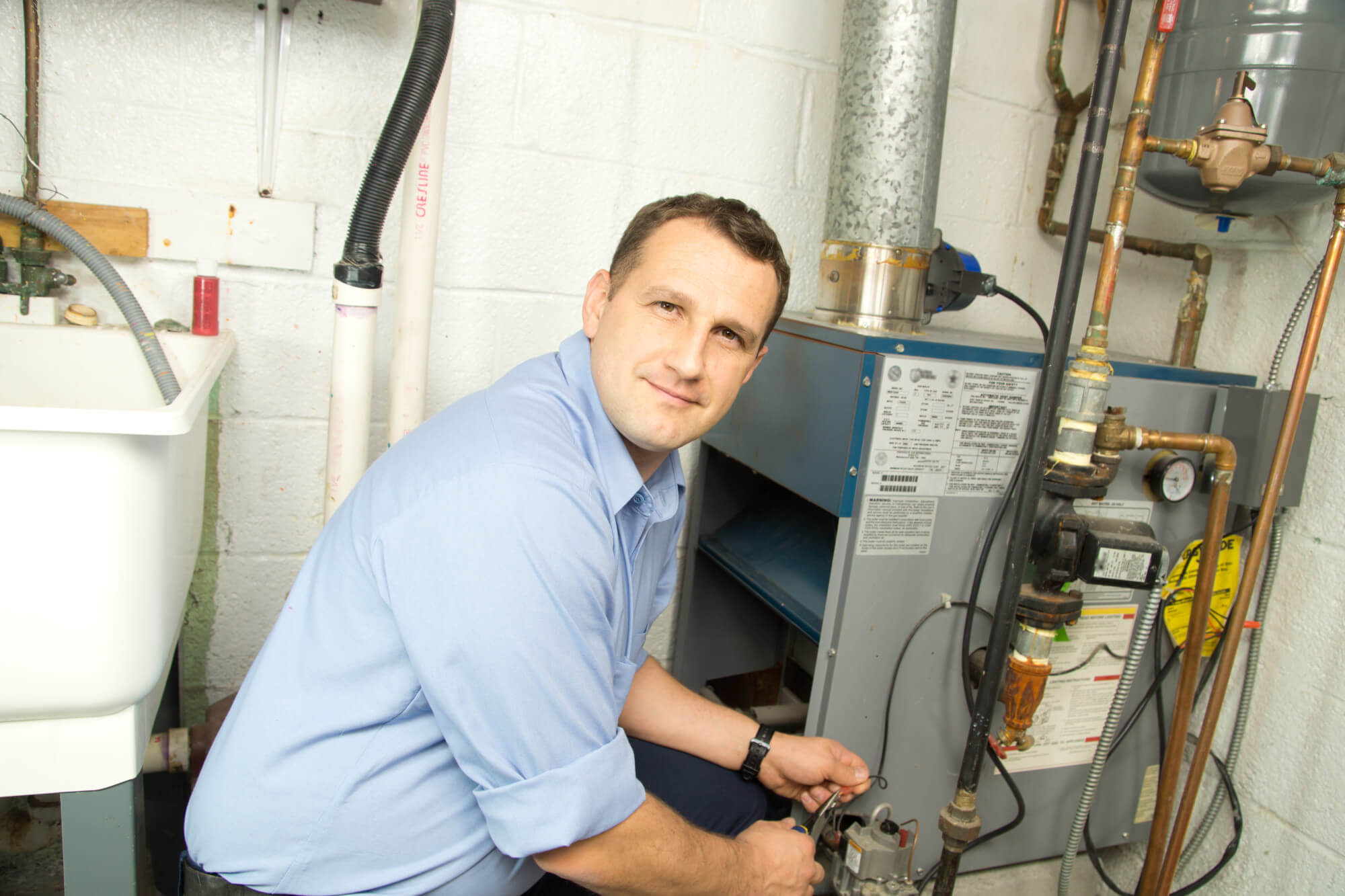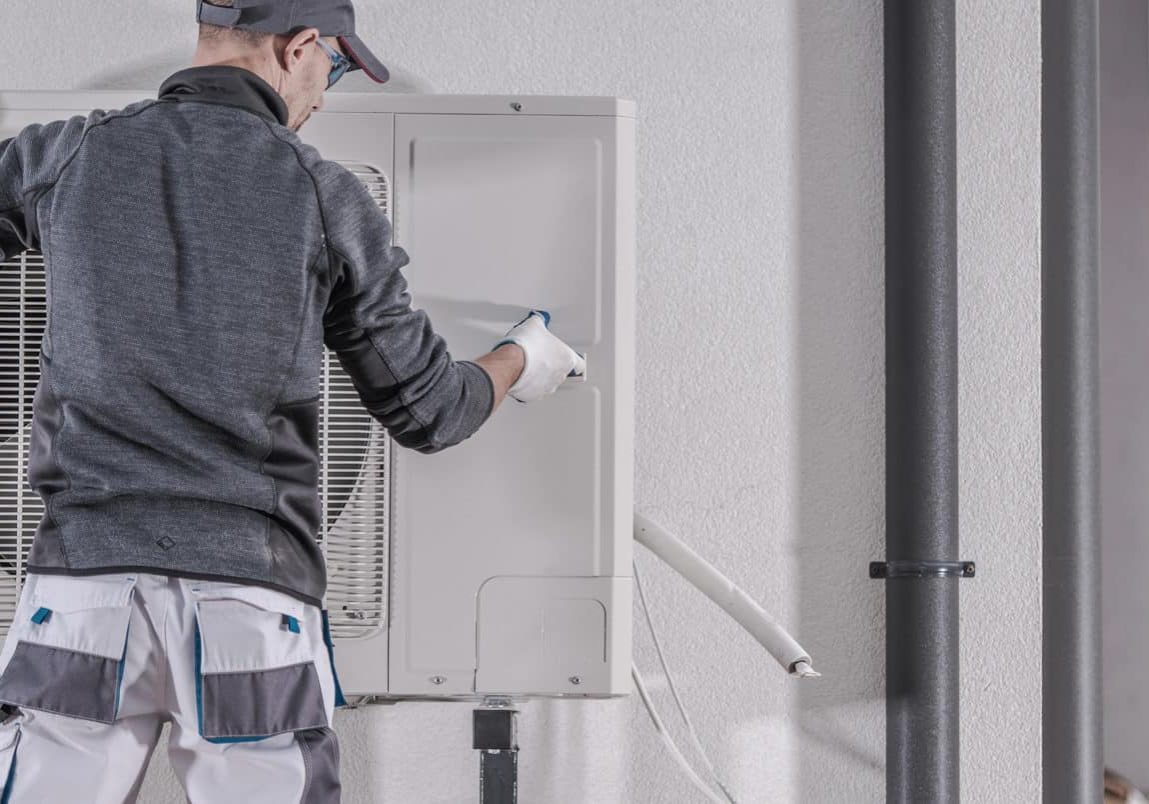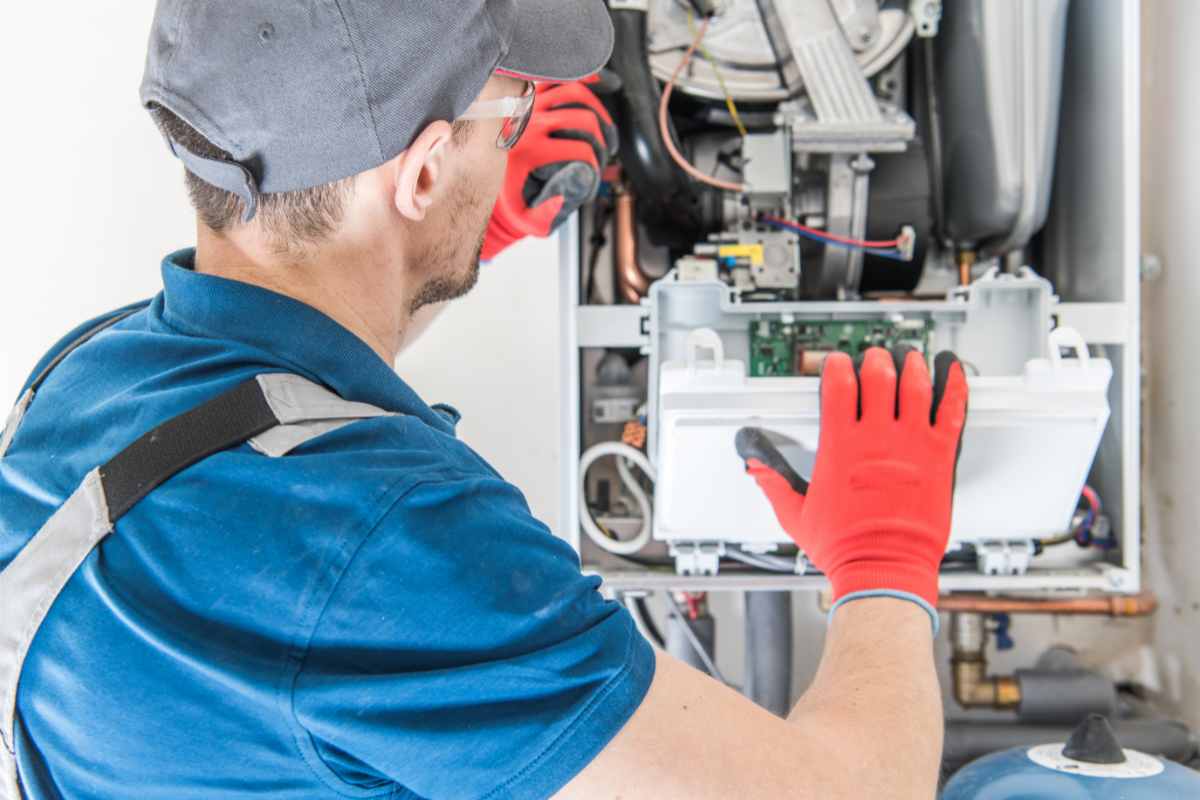Why Does My Furnace Keep Turning On & Off
Is your Furnace Keep Turning On And Off? Furnaces Turning On and Off is a problem often not well understood by homeowners. This is a very common problem people face, but it can`t be something which you can leave unfixed during cold winters. When furnaces start turning on and off unusually it is called furnace short cycling. During the short cycling, you will find your furnace runs then shuts off and starts again.
A furnace can come on by itself as part of its regular operation to maintain the temperature in the home. If the furnace turns on erratically or when the control panel is turned off, there may be a fault with the furnace or the controlling thermostat. This requires maintenance by a technician.
Reason My Furnace Kees Turning On & Off By Itself
There are numerous potential reasons that your furnace could be short cycling and won’t kick on. To understand the fixes let’s dive deep into this article.
- Clogged furnace filters. Dirty filters can affect the operation of the furnace. Air that the furnace has heated does not get through the filter effectively. The unit shuts off because it senses it has produced enough heat, but the air in your home cools faster, initiating a restart of the furnace via the thermostat.This is one of the simplest fixes to carry out and should be part of the normal regular maintenance of your heating system.
- Furnace thermostat failure. One of the most common causes, when the furnace tries to start and then shuts down, is a faulty thermostat. A damaged thermostat can send incorrect signals to the furnace, causing it to fire up when unnecessary.
- Your heating system is incorrectly sized. If your heating system is trying to heat space more than its excess capacity, it will continuously short cycle while attempting to maintain the temperature in a space that is too large. Likewise, a furnace that is oversized for the size of your home can also cause short cycling of the unit.
- Blockages in the chimney or air vents of the furnace. A furnace needs air cycling through it for exhaust and cooling purposes. If the chimney or the air vents become blocked, it can have the same result as clogged filters. Chimneys and vents can be blocked by bird or rodent nests and will cause the furnace to short cycle.
- A corroded or damaged flame sensor. The flame sensor checks when the furnace flame has kicked in and the duration of the burn. If this sensor has gone faulty or is damaged or corroded, it can give incorrect feedback to the controller and switch off the gas.This extinguishes the flame, but the thermostat signals the furnace to ignite again. This problem becomes a cycle, causing the furnace to switch on and off in quick succession.
- The furnace is too old and needs replacement. At some point, a furnace can reach an age where it no longer functions correctly, and it will randomly switch on as well as exhibit other aging symptoms and frequent problems. In this case, there is little to do other than replace your furnace with a new model.
Risks Of A Furnace Short Cycling
When a furnace comes on in an irregular cycle, it indicates that something is starting to go awry with your heating system and needs attention. Ignoring a furnace that is coming on by itself could lead to several undesirable consequences.
High Utility Bill
A furnace that comes on unnecessarily or that short cycles will burn more fuel. More fuel will result in an exorbitant utility bill on your next billing cycle.
The Furnace Overheating
When it runs more frequently than it should, the furnace can overheat. This can damage other components in the unit and cause a higher rate of wear and tear. It may also cause the unit to fail prematurely or result in expensive maintenance and repair bills.
The Furnace Can Overheat When It Runs More Frequently
This can damage other components in the unit and cause a higher rate of wear and tear. This may cause the unit to fail prematurely or incur expensive maintenance and repair bills.
The Furnace Could Cause A Fire
A furnace that comes on by itself is a potential fire hazard in your home. An overheating furnace can cause components to heat to the point of combustion, resulting in a fire.
What To Do When A Furnace Comes On By Itself
As we have seen, a furnace coming on by itself can be problematic and will have consequences. So, what can you do if your furnace is presenting with these issues?
Some possible causes can be remedied by your intervention, but others will require a technician to check out your furnace.
Check The Filters
Checking the filters on the furnace is a task you can do yourself, but it should not be necessary if you have your furnace and heating system serviced regularly.
The filters are generally cleaned or replaced as part of scheduled maintenance.
Check Your Themostat Settings
If you have a programmable thermostat, something may have gone wrong with the program or the settings, causing the furnace to kick on at random intervals.
You may have to reset and re-program the thermostat to solve the problem.
Furnace Keeps Shutting Off & Needs To Be Reset
Most modern furnaces have many electronics and circuitry that control the furnace operations, which can be stuck in a program loop.
You can perform the hard reset by turning the furnace’s main power off for at least 10 seconds and then restoring power. This will reset the furnace’s circuitry and restore systems to their original state.
Service The Furnace
A certified HVAC technician can only rectify many problems that cause a furnace to operate incorrectly, such as turning it on by itself.
Regular servicing of the furnace should prevent most of these issues, but if a fault arises that is hard to understand, it is best to call a technician out to check the system.
Regular servicing will let your HVAC company know when the furnace is beyond its useful life and needs replacement.

Call The Professionals
Call Fischer Plumbing Right Away And Get The Best Sewer Line Repair Service At Your Doorstep.








